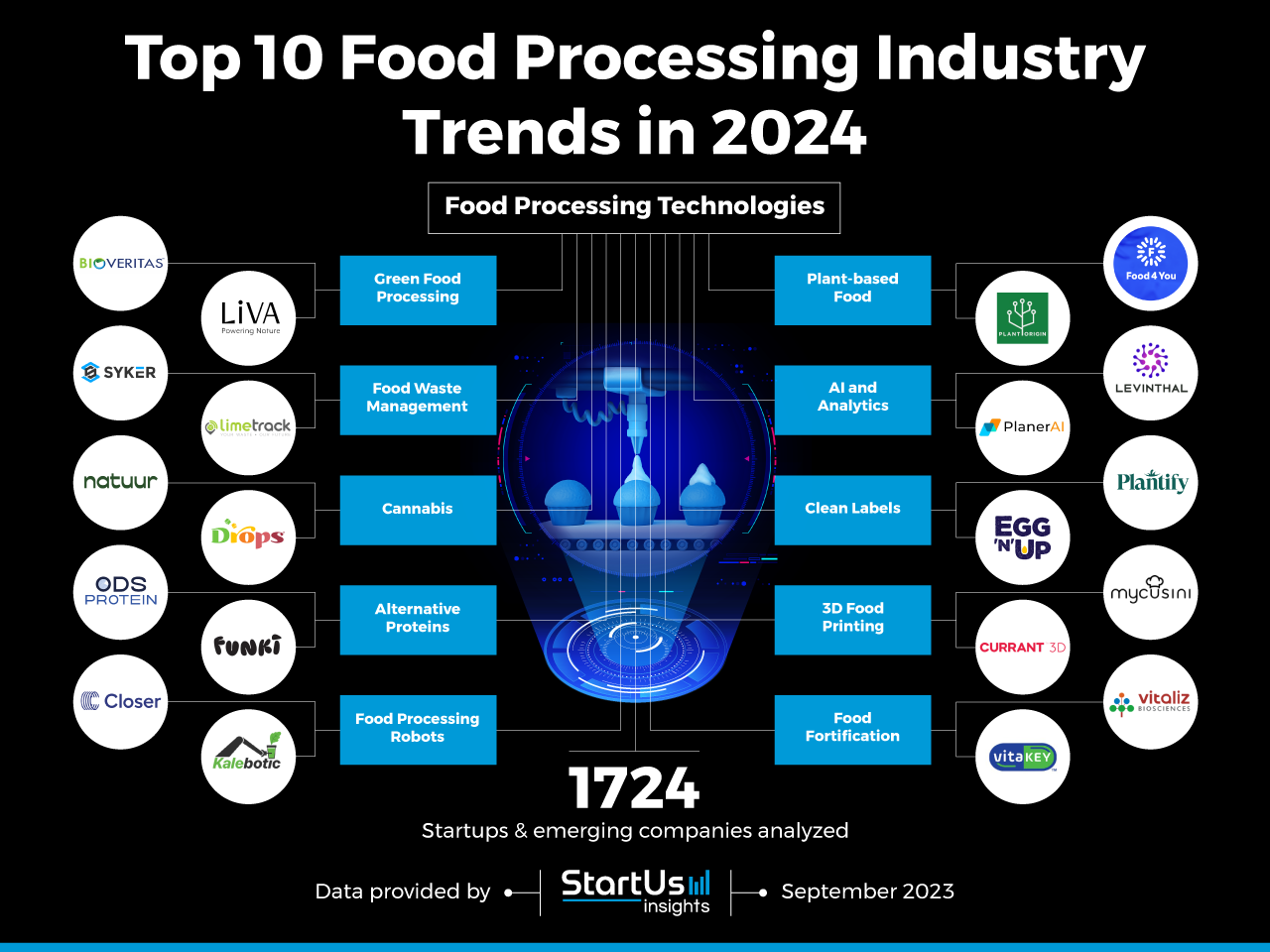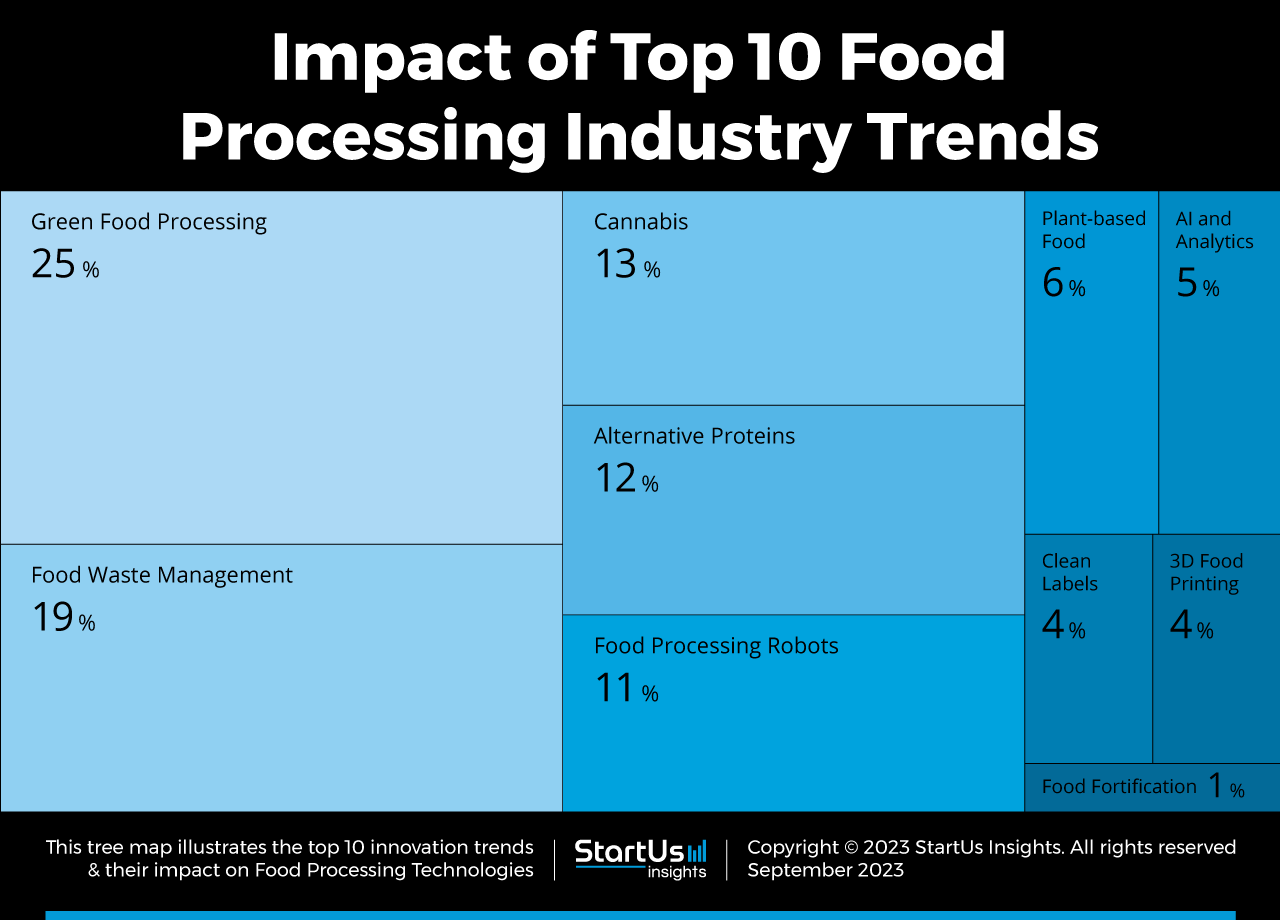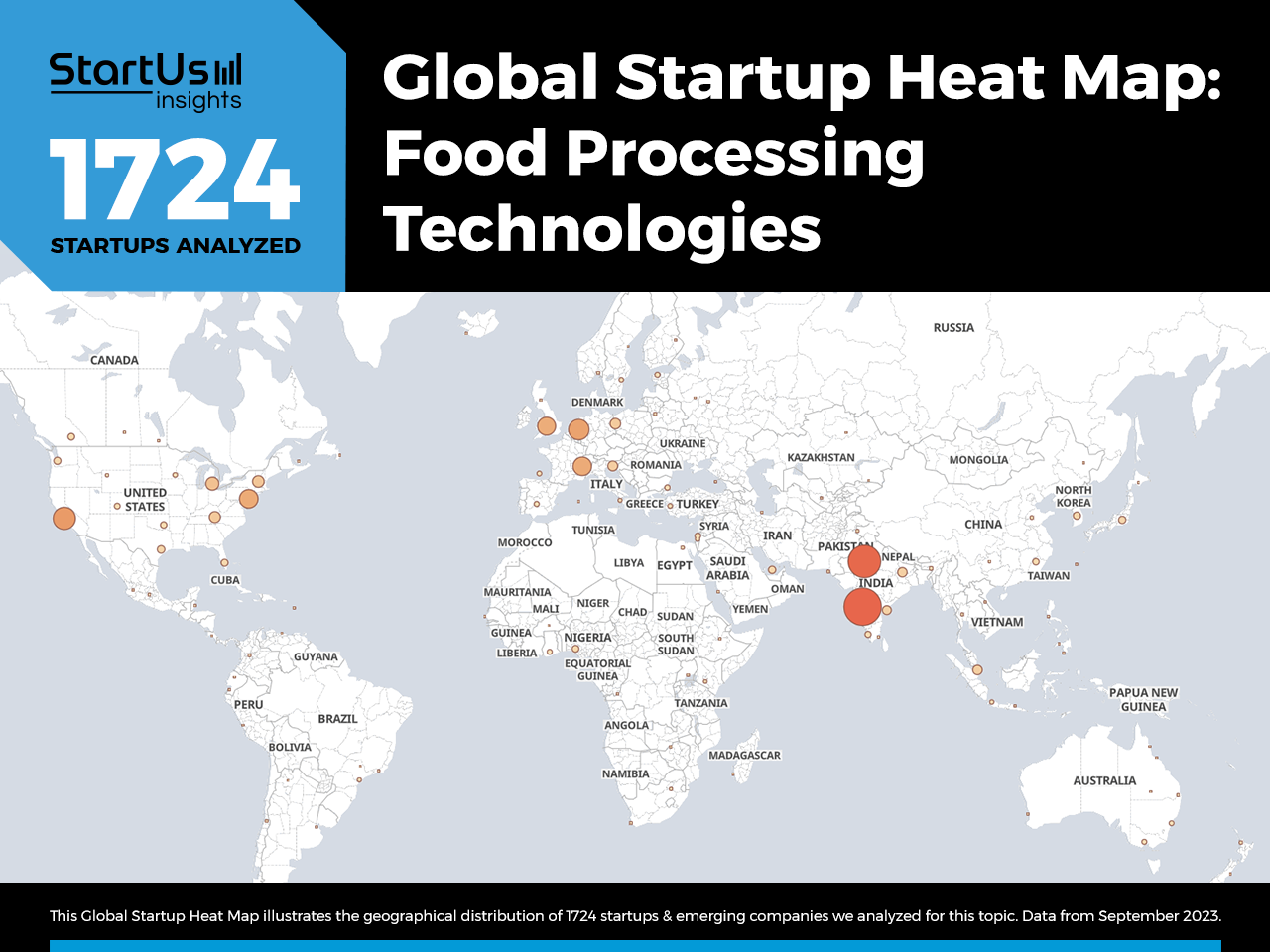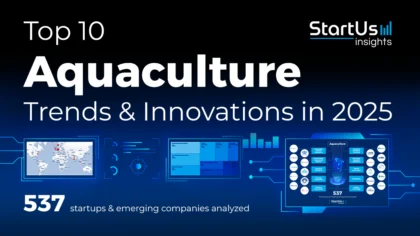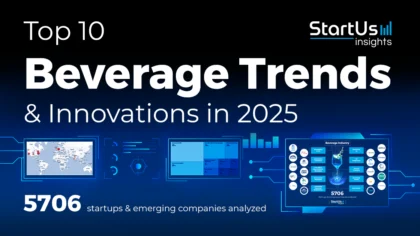Accelerate Productivity in 2025
Reignite Growth Despite the Global Slowdown
The transformation of raw ingredients into consumable food products forms the core of food processing, a practice integral to human civilization for ensuring preservation, flavor enhancement, and safety. Recent innovations, such as high-pressure processing, vacuum packaging, and ultrasonic processing, improve the quality, safety, and variety of processed foods. These advancements address current market demands for better food preservation and safety measures. This report explores the top food processing industry trends and their associated technology solutions, providing valuable insights for industry experts.
This article was last updated in August 2024.
Top 10 Trends in Food Processing (2025)
- Green Food Processing
- Food Waste Management
- Cannabis Processing
- Alternative Proteins
- Food Processing Robots
- Plant-based Food
- AI and Analytics
- Clean Labels
- 3D Food Printing
- Food Fortification
Innovation Map outlines the Top 10 Food Processing Industry Trends & 20 Promising Startups
For this in-depth research on the Top Food Processing Industry Trends and startups, we analyzed a sample of 1724 global startups & scaleups. This data-driven research provides innovation intelligence that helps you improve strategic decision-making by giving you an overview of emerging technologies in the food industry. In the Food Processing Innovation Map below, you get a comprehensive overview of the innovation trends & startups that impact your company.
These insights are derived by working with our Big Data & Artificial Intelligence-powered StartUs Insights Discovery Platform, covering 4.7M+ startups & scaleups globally. As the world’s largest resource for data on emerging companies, the SaaS platform enables you to identify relevant technologies and industry trends quickly & exhaustively.
Want to explore all food processing innovations & trends?
Tree Map reveals the Impact of the Top Trends in the Food Processing Industry
Based on the food processing innovation map, the treemap below illustrates the impact of the top 10 food processing trends. Startups are developing green food processing, emphasizing eco-friendly methods that reduce environmental impact. Closely aligned with this trend is food waste management, a movement dedicated to minimizing waste and promoting efficient utilization of resources.
The rise of cannabis and alternative proteins in culinary applications signifies a shift towards exploring unconventional ingredients for both their flavor and therapeutic benefits. Alternative proteins, such as insects and lab-grown meats, are gaining traction as sustainable protein sources. Similarly, food processing robots are revolutionizing production lines, ensuring precision and efficiency.
The surge in plant-based food popularity underscores a global shift toward health-conscious and environmentally friendly diets. Clean labels advocate for transparency, ensuring consumers are well-informed about the ingredients in their food. 3D food printing further offers a glimpse into the future of customized food, in shape and structure. The final food processing trend involves food fortification which ensures that processed foods are not just tasty, but also nutritionally enriched.
Global Startup Heat Map covers 1724 Food Processing Startups
The Global Startup Heat Map below highlights the global distribution of the 1700+ exemplary startups & scaleups that we analyzed for this research. Created through the StartUs Insights Discovery Platform, the Heat Map reveals high startup activity in India, followed by Europe and the USA.
Below, you get to meet 20 out of these 1724 promising startups & scaleups as well as the solutions they develop. These food processing innovations are hand-picked based on criteria such as founding year, location, funding raised & more. Depending on your specific needs, your top picks might look entirely different.
Top 10 Food Processing Industry Trends in 2025
1. Green Food Processing
Green food processing emphasizes the utilization of renewable resources, minimizing waste, and reducing energy consumption. Food processing technology increasingly incorporates sustainable methods. For example, techniques like freeze-drying, high-temperature short-time (HTST) processing, decaffeination, aseptic packaging, and food irradiation transform the industry.
Additionally, commercial ripening rooms utilize ethylene for controlled fruit ripening, while innovations like edible coatings extend produce shelf life. The approach also guarantees enhanced food quality. By eschewing harmful chemicals and preservatives and leaning into natural processes, the resultant food retains a higher nutritional value, offering superior taste and texture.
Bioveritas develops Upcycling Technology for Plant-based Byproducts
US-based startup Bioveritas focuses on the upcycling of underutilized plant-based byproducts from the food industry. The company’s primary process involves converting these byproducts into short- and medium-chain fatty acids. This conversion is achieved through a self-regulating natural ecosystem of microorganisms. This microbial consortium mirrors the processes observed in the gastrointestinal tracts of ruminant animals, where organic acids are produced through fermentation by beneficial microorganisms.
The company employs its BioVeritas Process, which is a modified anaerobic digestion that does not release methane. BioVeritas ensures the recovery of these organic acids from the fermentation effluent in an environmentally friendly manner, notably without the involvement of petrochemicals like mineral acids.
Liva Bio Protection Technologies builds Bio-protection Technology
Israeli startup Liva Bio Protection Technologies works on bio-protection technology designed to extend the shelf life of various products. The core principle behind Liva’s technology is the stimulation of the growth of human-friendly bacteria that are naturally present in the product or its surroundings.
It achieves this through its patented pre-biotic blend, which creates an optimal environment that promotes the growth of beneficial bacteria while delaying the growth of pathogens. These bacteria have been identified as effective against a range of twenty-three plant pathogens, thereby inhibiting the growth of fungus and other spoilage agents. The formulation has been found effective with a variety of fresh foods, including bread, yellow cheese, avocado, and lettuce.
2. Food Waste Management
Food waste management addresses the pressing challenge of discarded food, transforming it from an environmental liability into a resource. In food processing, this means optimizing processes to extract maximum value and minimize overall waste. The benefits cover supporting a sustainable environment and driving economic efficiency.
Enhanced packaging techniques extend product shelf life, while methods like anaerobic digestion transform waste into biogas. Modern inventory systems track product expiration, ensuring optimal product rotation. Startups also work on educating consumers on product labels, utilizing retail strategies like discounting near-expiry items and adhering to regulatory standards to further reduce waste.
Syker Systems develops Sustainable Food Waste Digesters
Canadian startup Syker Systems engineers solutions as alternatives to landfills. Central to their offerings is the Syker System, designed to address food waste directly. This system is adaptable and suitable for diverse establishments from small restaurants to large sports venues. The Syker System addresses food waste issues with an emphasis on environmental responsibility.
Annually, the amount of food waste is significant, with notable environmental impacts. In response to the need for effective waste management, Syker Systems introduced food waste digesters. These digesters divert food waste from landfills, allowing users to handle waste at its source. Utilizing the Syker System improves environmental sustainability and optimizes operations while reducing food waste disposal costs.
Limetrack develops SMART food waste bins for Efficient Waste Management
British startup Limetrack is a technology-driven company that focuses on addressing the challenges of food waste management. The core offering of Limetrack is its SMART food waste bins, which are designed to not only collect food waste but also provide data analytics. These bins serve multiple purposes: they assist businesses in increasing their profits, contribute to environmental sustainability, and ensure compliance with separate waste regulations.
The SMART bins have a unique feature where they weigh the deposits and create a digital record of the separated food waste. By analyzing the type and quantity of food waste discarded, Limetrack allows businesses to reduce their food waste, potentially leading to significant savings. Beyond SMART bins, the company provides a comprehensive service that includes patented wheelie bins, caddies, liner management, and food waste reduction analytics.
3. Cannabis Processing
A cannabis edible, commonly referred to as an edible, is a food or drink product that contains decarboxylated cannabinoids, primarily THC. Its infusion in edibles offers unique flavors and potential health benefits. Chefs incorporate it into gourmet dishes, elevating culinary experiences. Research delves into its nutritional advantages, sparking interest in its diverse applications.
Cannabis has been creatively integrated into various culinary dishes, spanning from savory to sweet. Foundational ingredients like cannabis-infused butter and oils serve as bases for dishes like pesto, pizza, and burgers. Desserts such as cannabis brownies, ice cream, and gummies, while beverages range from teas and coffees to innovative cocktails, expand the opportunities for food companies.
Natuur formulates Cannabis Infusion with Advanced Delivery System.
US-based startup Natuur specializes in the innovative integration of plant science, particularly focusing on the cannabis ingredient. The startup’s Natuur Nano is a groundbreaking delivery system tailored to optimize the bioavailability of cannabis and other traditionally challenging active ingredients. Natuur Nano combines biochemistry, food science, and specialized cannabis ingredient research.
Natuur formulates proprietary blends that stabilize and solubilize these active ingredients, ensuring their integrity remains uncompromised. Its process involves breaking down cannabis bioactive ingredients into nanoparticles and emulsifying them with specific base formulations. These nanoparticles are then encapsulated, offering protection from degradation and oxidation, leading to a system that ensures rapid absorption of cannabis molecules at optimal points.
Drops Candies offers Cannabis-infused Gummies
US-based startup Drops Candies offers a variety of cannabis-infused gummies with different strains, effects, and THC/CBD ratios. The startup utilizes a key ingredient, its Smoky Flower Live Rosin. As a full spectrum concentrate, live rosin preserves the full array of psychoactive compounds that make each strain unique. This enables Drops to infuse each of its ten flavors with a distinct cannabis strain. In addition to live rosin, Drops Candies also incorporates fruit extracts, pectin, citric acid, sugars, and plant-based coloring into its products.
4. Alternative Proteins
Alternative proteins are derived from plants, insects, and lab-grown sources, that offer sustainable and ethical choices. Research highlights their nutritional equivalence to traditional proteins. As global diets evolve, food industries adapt by integrating these innovative protein sources.
Fermented proteins, produced using microorganisms, have the potential to scale rapidly in the alternative protein market. Meanwhile, cultivated proteins, or lab-grown meats, are created by cultivating animal cells, offering a promising alternative to conventional animal farming.
Originating from unconventional yet sustainable sources such as legumes, fungi, insects, and even lab-cultured processes, these proteins are answering the global call for more eco-friendly food options. This trend marks a pivotal shift towards sustainable and conscious eating in modern gastronomy.
ODS Protein provides Sustainable Alternative Protein Solutions
ODS Protein is a Spanish startup that specializes in the production of alternative proteins through a fermentation process. These proteins possess an ideal formulation and texture, making them suitable for integration as ingredients in various food products.
Its product is a powdered alternative protein, complete with all essential amino acids. It’s derived from yeast fermentation, making the production process scalable and precise. Furthermore, the protein is sourced from fungi, making it suitable for vegan diets. The company also emphasizes sustainable production by utilizing food industry waste and reducing the use of natural resources.
FUNKI offers Mycoprotein-Based Nutrition
Estonian startup FUNKI offers protein products derived from mycoprotein, a protein-rich fungus, and serves as the primary ingredient. It is a fungal mycelium biomass produced through fermentation. This choice of ingredient ensures that consumers receive a healthy source of protein that aligns with environmentally conscious choices.
FUNKI ensures that its products retain a delightful taste, allowing consumers to enjoy the benefits of mycoprotein without compromising on the sensory experience. This balance between health, sustainability, and taste positions FUNKI as a unique player in the protein product market, allowing producers to make different products like filets, sausages, funkiballs, and more!
5. Food Processing Robots
Food processing robots streamline operations, ensuring precision and consistency in tasks that were once labor-intensive. Advanced sensors and machine learning algorithms enable them to handle a variety of foods with delicate care or required force.
The robots pick, sort, and package products, ensuring uniformity in tasks like cutting, slicing, and dicing. The robots also manage large-scale mixing, cooking, and frying, while in meat processing, the robots assist in deboning and butchering.
Additionally, the robots play roles in palletizing goods for transport, cleaning equipment for sanitation, and even in specialized tasks like baking and decorating. The robots’ versatility addresses industry challenges, from labor shortages to safety standards.
Closer builds Robotics-as-a-Service (RAAS)
Japanese startup Closer specializes in addressing the challenges of labor shortages and production capacity in the food, cosmetics, and pharmaceutical industries through robotic technology. Its primary offering is the Pick Packer robot, which integrates FANUC Robot and Closer’s proprietary software applications. This solution is designed to empower manufacturers to shift from traditional capital expenditure to an operational expenditure model.
The company’s Robotics-as-a-Service (RaaS) model emphasizes the inadequacy of traditional automation cells for high-mix and low-volume production requirements. Instead of re-hiring programmers for new products, the RaaS model encourages staff to focus on high-value tasks, with the Pick Packer robot enhancing business productivity and quality. The cloud platform, apps, and analytics tools provided by Closer facilitate robot management, software updates, maintenance, and diagnostics.
KIINNS develops a Robotic Cleaning System
KIINNS is an Israeli startup that develops a robotic cleaning system for industrial food production. It applies a disposable and biodegradable polymeric coating to machinery surfaces to create an impermeable barrier that prevents contamination during food processing. The system features autonomous operations and removal of the polymer after each production batch. This minimizes foodborne illnesses, reduces waste, and enhances operational efficiency.
Find out how 10 emerging technologies shape your industry!
6. Plant-based Food
Plant-based foods mirror the taste, texture, and nutritional value of animal-derived products, yet originate entirely from plants. The food processing industry witnessed a surge in techniques tailored for plant-based products. Ingredients like soy, peas, and legumes undergo sophisticated processes to transform into meat-like textures, dairy alternatives, and even egg substitutes.
Plant-based foods generally require less water, land, and energy, reducing the carbon footprint associated with food production. As the world grapples with climate change, this shift offers a tangible solution to reduce greenhouse gas emissions. Nutritionally, plant-based foods bring a plethora of benefits. Rich in fiber, vitamins, and minerals, they cater to a growing consumer base keen on health and wellness.
Food4You provides Fermented Plant-based Food
Argentina-based startup Food4You develops new ingredients that enhance the quality of plant-based foods while ensuring clean labels. By applying unique combinations of lactic acid bacteria (LAB) to ferment plant-based foods, Food4You harnesses the power of these microorganisms. The compounds produced during this fermentation process serve to improve the texture, flavor, and nutritional profile of foods.
This method also allows for a reduction in added ingredients, thereby elevating the overall quality of the final food product. They act as biofactories, producing flavors, vitamins, and antioxidants. These bacteria are recognized as safe (GRAS) and have been used for decades in the food industry as fermentation starters. Importantly, the bacteria employed by Food4You are natural and not genetically modified.
Plant Origin Food develops a Plant-based Egg Replacement
Thai startup Plant Origin Food offers plant-based food alternatives that are both tasty and affordable. It offers exx, a plant-based egg powder. The startup’s product boasts a protein content equivalent to a traditional egg per serving. Further, the hydrolyzed protein in exx consists of small-chained amino acids or peptides, which are designed for rapid absorption.
Preparing exx is a straightforward process: one needs to mix 28 grams of the powder with 100 ml of water, then fry the mixture in a non-stick pan for a few minutes on each side. The result is a plant-based egg alternative that can be seasoned and enjoyed just like animal-based eggs.
7. AI and Analytics
AI systems monitor and adjust processing parameters in real-time. They ensure consistency, reduce waste, and enhance the overall quality of the final product. Advanced sensors paired with AI algorithms detect anomalies, further enabling the best products to reach consumers. Whether it’s spotting a misshapen item, identifying foreign particles, or assessing color consistency, the sensors and AI ensure rigorous quality checks.
Supply chain optimization is another application of AI and Analytics. Predictive analytics forecasts demand, allowing industries to adjust production schedules, manage inventory, and reduce wastage. This not only ensures timely delivery but also contributes to sustainable practices by minimizing resource overuse. Analytics tools also sift through vast amounts of data, identifying emerging trends and preferences.
Levinthal advances AI-based Protein Design
Chinese startup Levinthal builds artificial intelligence (AI) driven protein design platform. The company’s approach is rooted in understanding the co-evolutionary patterns of proteins. By integrating these insights with AI, Levinthal focuses on driving and expanding the design and application scenarios for proteins.
It aims to address significant societal challenges, including environmental protection, food safety, and medical advancements. The company develops algorithms and wet experimental process technology, enabling enterprises in the fields of synthetic biology, food, feed, cosmetics, and environmental protection to design more stable and more efficient enzymes of various types.
PlanerAI develops Fresh Food Planning & Waste Management Tools
German startup PlanerAI offers an AI-driven planning solution tailored for fresh foods. Its platform provides an integrated, fully automated planning system that spans from food production to its placement on supermarket shelves. For producers, PlanerAI’s platform opens up new distribution channels, ensures better profit margins, and significantly reduces food wastage. The platform guarantees optimal planning accuracy through precise forecasts and seamlessly integrates into existing systems without the need for additional hardware or software.
For example, PlanerAI’s BäckerAI aims to revolutionize the confectionery industry. It addresses the prevalent issue of discarding baked goods due to inaccurate demand estimation and production quantities.
8. Clean Labels
Clean labels represent more than just simplified ingredient lists. The process integrates ethical sourcing, sustainability, and transparent packaging techniques. Products with clean labels leverage technologies and practices to assure consumers of their environmentally conscious journey from production to consumption.
As worldwide understanding of the link between diet and health intensifies, clean labels act as markers of credibility, clarifying packaged food contents and empowering consumers with knowledge. Such transparency cultivates consumer trust, drawing them to brands that emphasize honesty and openness.
Plantify Foods provides Wholesome Choices with Plant-Based Foods
Canadian startup Plantify Foods is dedicated to offering plant-based foods that prioritize health and well-being. Every item from Plantify Foods is free from GMOs, and preservatives, and contains only understandable ingredients. This ensures that consumers receive products with a long shelf-life without compromising on health or taste.
A distinctive feature of Plantify Foods is its innovative approach to preparing plant-based foods. It successfully integrates multiple health-centric attributes into its products, ensuring that customers enhance their overall well-being. Plantify Foods does not focus on replicating the taste of animal meat. Instead, it crafts unique combinations of vegetables, fruits, and spices to create meals that are both flavorful and nutritious.
Egg’n’Up provides Plant-Based Egg Replacements
Egg’n’Up is an Israeli food tech startup that develops a plant-based egg replacement solution. The company’s proprietary technology and unique plant-based formulations enable its egg replacers to emulate the versatile functionality of eggs. This includes the ability to bind, gel, foam, emulsify, texturize, and thicken, all while delivering the taste, texture, mouthfeel, and nutritional profile akin to a real egg.
Egg’n’Up’s products stand out due to their clean-label attributes. It contains no E-numbers, methylcellulose, hydrocolloids, or transglutaminase. Additionally, it is non-GMO, free from allergens, and contains no cholesterol. The ingredient list is kept short and understandable, emphasizing transparency and simplicity.
9. 3D Food Printing
3D food printing employs digital models to craft intricate, layered food structures, allowing for high precision and customization in food design. By adjusting the ingredients in real-time, manufacturers cater to specific dietary needs, be it low-sugar, high-protein, or allergen-free formulations. This level of customization was previously unattainable with traditional manufacturing methods.
Beyond personalization, 3D food printing also finds use cases in sustainable practices. This is achieved by its capability to utilize alternative protein sources like algae or insects, it paves the way for more eco-friendly food solutions. Further, the precision of 3D printing ensures minimal wastage, as ingredients are used only where needed. This efficiency not only conserves resources but also reduces costs.
Mycusini delivers Artistic Delights with 3D Chocolate Printing
Germany-based startup Mycusini works on 3D food printing. The startup’s product, mycusini 2.0 is a 3D chocolate printer. The device is designed to bring creativity to the kitchen, allowing users to craft intricate chocolate designs with ease. The mycusini 2.0 boasts a range of features that make it user-friendly and efficient.
Its multilingual user interface supports several languages, including German, English, Spanish, Italian, and French. An illuminated print area ensures precision, and the design facilitates easy cleaning. One of the standout features of mycusini 2.0 is its use of special 3D Choco refills. These refills are designed to guarantee success, ensuring that users can achieve desired results without much hassle.
CURRANT 3D prints Personalized Functional Ingredients
US-based startup CURRANT 3D specializes in providing 3D printers designed for the food industry. The startup’s 3D printer provides unique desserts, custom cocktails, and savory entrees. The product enables personalized functional ingredients, providing food industry professionals with 3D printers for food that are easily accessible and scalable for businesses or events.
CURRANT 3D’s platform crafts and prints foods using a vast array of ingredients, encompassing fruits, vegetables, plant proteins, grains, liquids, and spices. Originating from von Hasseln’s innovation in dehydrated food printing, this platform stands as a food-safe, 3D food printer for extensive production.
10. Food Fortification
Food fortification involves adding essential micronutrients to foods to address deficiencies. Various technologies support this process, premixing ensures even nutrient distribution, while extrusion and spray drying are used for cereals and powdered products, respectively. Double fortification introduces multiple nutrients simultaneously, and ultra-rice technology creates fortified rice grains.
Encapsulation protects nutrients, especially in fats and oils, and emerging nanotechnology, promises enhanced nutrient absorption. Further, biofortification, though distinct, breeds crops with higher nutritional content. Ribbon blending and vacuum coating ensure even nutrient distribution in flours and cereals. The chosen method often depends on the food type and desired outcome, with quality control being paramount.
Vitaliz Biosciences works on Nutritional Ingredient Formulations
Indian startup Vitaliz Biosciences focuses on food fortification. The startup specializes in the production of specialty nutritional ingredients. The startup’s portfolio includes omega fatty acids, enzymes, fortified probiotics, phytonutrients, and tailored ingredient formulations.
These ingredients find application across various sectors, including milk products, edible oils, chocolates, confectionery, bakery items, malted drinks, and baby food. These are produced on a ‘white label’ basis, tailored to customer requirements. Vitaliz Biosciences employs advanced food engineering techniques to craft preformulated products that seamlessly integrate into various food items.
VitaKey develops Precision Nutrition Delivery Platform
US-based startup VitaKey develops a platform for precision delivery of essential nutrients. The startup’s platform uses evidence-based technology to target and time-control the release of a wide spectrum of nutrients. These range from micronutrients and macronutrients to probiotics, prebiotics, nutraceuticals, antioxidants, and flavors.
It integrates into every facet of the food chain, offering precision nutrition solutions for humans of all age groups, seeds and agriculture, and even pet food and animal feed. The platform offers features that aid in enhancing desired flavors and aromas while simultaneously suppressing any undesirable tastes and odors.
Discover all Food Processing Trends, Technologies & Startups
The rise of smart processing technologies will enhance efficiency while reducing waste. With growing environmental concerns, the industry is pivoting towards eco-friendly packaging and energy-efficient processing methods. This shift not only addresses ecological challenges but also meets the evolving consumer demand for green products.
The food processing industry trends and startups outlined in this report only scratch the surface of trends we identified during our data-driven innovation & startup scouting process. Identifying new opportunities & emerging technologies to implement into your business goes a long way in gaining a competitive advantage.

